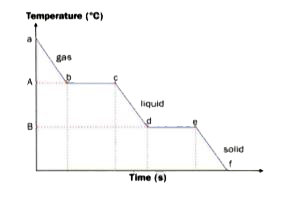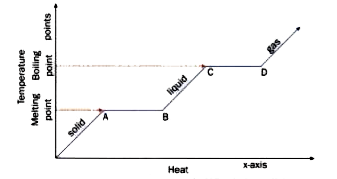Heat can be converted completely into equivalent amount of work without producing changes elsewhere.
To solve the question, we need to analyze the statement: "Heat can be converted completely into equivalent amount of work without producing changes elsewhere." We will use the principles of thermodynamics, particularly the second law, to evaluate this statement.
1. Understanding the Statement: The statement suggests that heat can be entirely transformed into work without any other changes occurring in the system or surroundings.
2. Referencing the Second Law of Thermodynamics: According to the second law of thermodynamics, energy transformations are not 100% efficient. This law implies that while energy can be converted from one form to another, some energy is always lost as waste heat, and not all heat can be converted into work.
3. Defining Work and Heat: Work is defined as the transfer of energy by any process other than heat. Heat, on the other hand, is energy transferred due to a temperature difference.
4. Interrelation of Heat and Work: The second law states that while work can be completely converted into heat (for example, in a frictional process), the reverse is not true. Heat cannot be completely converted into work without some changes occurring in the system or surroundings.
5. Conclusion: Since the second law of thermodynamics dictates that not all heat can be converted into work without changes elsewhere, the statement is false.
Final Answer:
The statement "Heat can be converted completely into equivalent amount of work without producing changes elsewhere" is false according to the second law of thermodynamics.
---
The statement "Heat can be converted completely into equivalent amount of work without producing changes elsewhere" is false according to the second law of thermodynamics.
Topper's Solved these Questions
- CHEMICAL THERMODYNAMICS BOOK - ICSECHAPTER - CHEMICAL THERMODYNAMICS EXERCISE - FILL IN THE BLANKS. TYPE QUESTIONS
20 Videos
- CHEMICAL THERMODYNAMICS BOOK - ICSECHAPTER - CHEMICAL THERMODYNAMICS EXERCISE - ASSERTION -REASON TYPE QUESTIONS
9 Videos
- CHEMICAL THERMODYNAMICS BOOK - ICSECHAPTER - CHEMICAL THERMODYNAMICS EXERCISE - OBJECTIVE (MULTIPLE CHOCE) TYPE QUESTIONS
59 Videos
- CHEMICAL BONDING AND MOLECULAR STRUCTUREBOOK - ICSECHAPTER - CHEMICAL BONDING AND MOLECULAR STRUCTUREEXERCISE - NCERT TEXT-BOOK EXERCISES ( WITH HINTS AND SOLUTIONS)
47 Videos
- CLASSIFICATION OF ELEMENTS AND PERIODICITY IN PROPERTIESBOOK - ICSECHAPTER - CLASSIFICATION OF ELEMENTS AND PERIODICITY IN PROPERTIESEXERCISE - NCERT TEXT-BOOK. EXERCISE (With Hints and Solutions)
63 Videos
Similar Questions
Knowledge Check
A given amount of heat cannot be completely converted into work. However it is possible to convert a given amount of work
Completely into heat this apparently contradictory statement results from theAzeroth law of thermodynamicsBsecond law of thermodynamicsCsecond law of thermodynamicDthird law of thermodynamics
Can water be boiled without heating?
View SolutionΔG is the available energy (energy produced) during the electochemical reaction in galvanic cell which can be converted into useful work. In the light of second law of thermodynamics, in the cell, the change in electrode potential with temperature will be equal to:
View Solution3g of an oxide of a metal is converted completely to 5g chloride. Equivalent weight of metal is:
View SolutionSelect the correct statement for work, heat and change in internal energy
View SolutionLook at the change of state diagram from gas to solid given here carefully, and answer the following questions.
a. During freezing, certain amount of heat is given out without any change in temperature. Which part of the graph shows this change?
b. During condensation, certain amount of heat is given out without any change in temperature. Which part of the graph shows this change?
c. Which point on the graph corresponds to
İ. condensation point? ii. freezing point?
d. What do ab and cd on the graph represent?

View SolutionObserve the graph given below and answer the following questions:

During melting of a solid, certain amount of heat is absorbed without any change in temperature. Which part of the graph shows this change?
View SolutionHow can the pitch of sound produced in a piano be changed ?
View Solution
